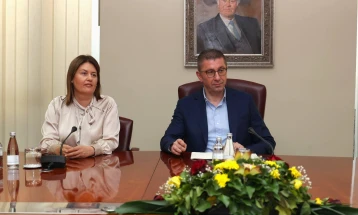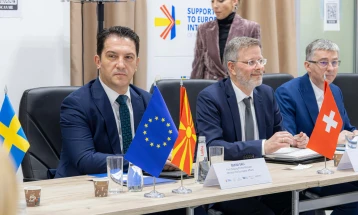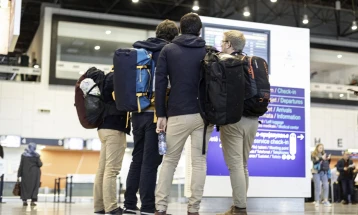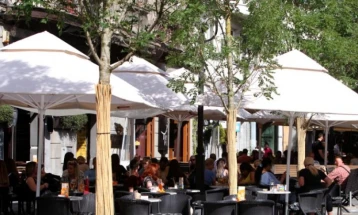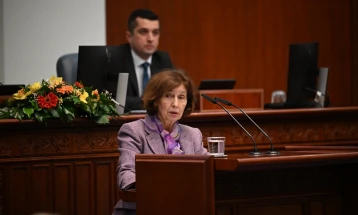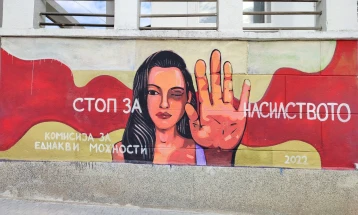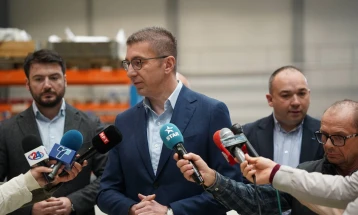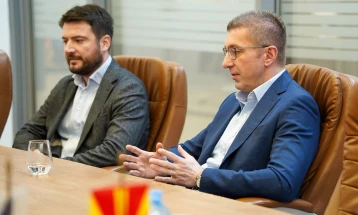Ljutkov: Potential of cultural and creative sectors vital for EU integration
- Minister of Culture Zoran Ljutkov addressed Monday the Ministerial Meeting on the EU Agenda for the Western Balkans focusing on Innovation, Research, Education, Culture, Youth and Sport held in Skopje by the Delegation of the European Union, noting that the event affirms the need for Western Balkan countries to continue to cooperate with the EU.
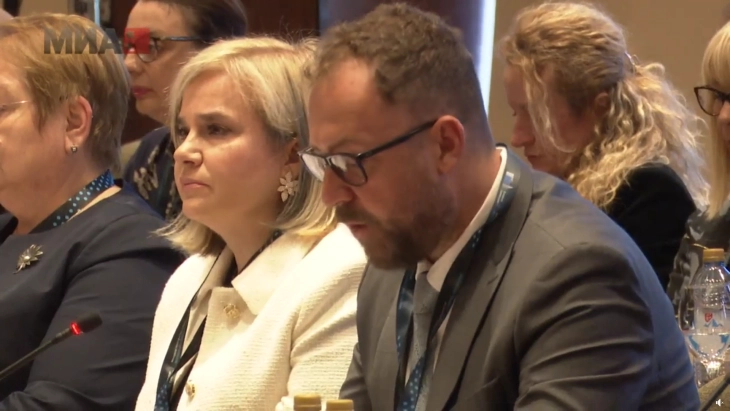
Skopje, 30 September 2024 (MIA) - Minister of Culture Zoran Ljutkov addressed Monday the Ministerial Meeting on the EU Agenda for the Western Balkans focusing on Innovation, Research, Education, Culture, Youth and Sport held in Skopje by the Delegation of the European Union, noting that the event affirms the need for Western Balkan countries to continue to cooperate with the EU.
The Minister highlighted the importance of the Western Balkans Steering Platforms on Culture, Education and Training and Research and Innovation.
“I am glad that it was precisely here in Skopje, that culture became a part of the Steering Platform for the first time. As representatives of the culture sector, we believe that this mechanism will enable a more efficient cooperation with the European Commission on an operational level within the implementation of the joint regional and European agenda. With their creative and diverse potential, they will undoubtedly contribute to the development of national policies, regional cooperation and the EU’s current culture policies,” Ljutkov said, stressing the “vital importance” of the potential of the cultural and creative sectors in the Euro-integration process.

Minister of Education and Science, Vesna Janevska, in her address at the meeting, said it provides an excellent opportunity to discuss ways to strengthen unity and mutual cooperation.
“If we continue to translate the sincere will, enthusiasm and efforts for development of the countries we represent into joint action, then, we will find it easier to achieve our goals and make the region more recognizable for its accelerated growth and competitiveness on a global scale. Experiences show that meetings like these, held under the auspices of the EU, are always an excellent opportunity to upgrade the existing and create new policies meant to overcome the challenges we share,” Janevska said.
The Minister of Culture and Innovation from the Hungarian Presidency of the Council of the European Union, Balázs Hankó, noted that research and innovations should be at the heart of the EU’s strategic commitments.

“In order to boost the EU’s competitiveness, we will place research and innovations at the focus of our agenda in the coming year, during our presidency. There is one serious issue that we face, and that’s the fragmentation of the European ecosystem for research and innovations. I believe that the inclusion of all member states will lead to improvements. The cooperation between countries in innovations and research will be at the heart of the work of the Western Balkan countries and some member states,” Hankó added in his address.
The Ministerial Meeting on the EU Agenda for the Western Balkans focusing on Innovation, Research, Education, Culture, Youth and Sport will continue Tuesday. The ministers attending the meeting, along with all other participants, will discuss the significant role of the European Research Area and the European Innovation Agenda, in which all Western Balkan partners are fully integrated.
Photo: MIA/screenshot
